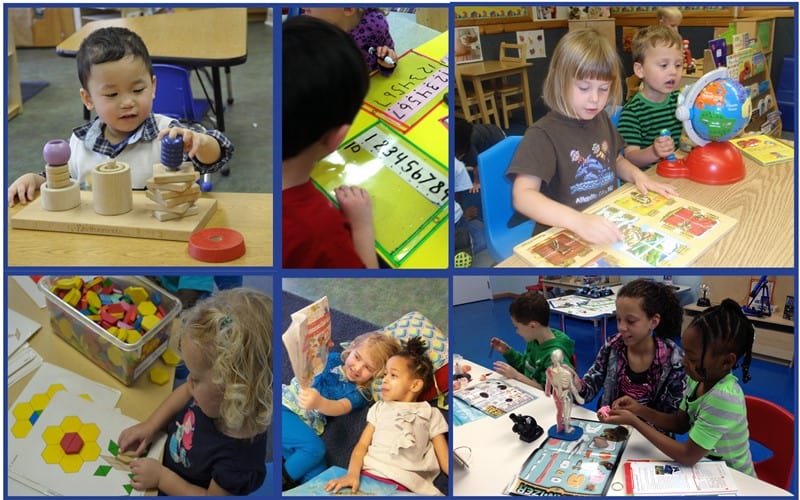How to Handle the Curiosity of a Toddler
“WHYWHYWHY:” why does this word and the never-ending repetition of it make up a toddler’s entire vocabulary? How do we deal with the curiosity that comes from such a simple question? Toddlers are known to be curious little things that never seem to sit still. We can always count on them to be tottering half a room away looking for the next item on the list for destruction. When toddlers continuously ask us the ‘why’ question, they are trying to make sense of the world around them. While it may seem easier to just give them the whole spiel on why it’s raining, that’s not how toddlers’ brains work. They need to make sense of the answers they get one step at a time. They learn new things everyday through observation and little facts. Berate them with a bucket of facts on how the world works and you’ll have one very confused tot.
Stumped by some of the questions your little one asks you? You are definitely not alone. Toddlers ask so many questions that there are a number of books out there just to help parents answer them. Catherine Ripley’s Why?: The Best Ever Question, and Answer Book About Nature, Science, and the World Around You are two great books that you can take advantage of. Brain Quest also has a lot of games with questions and answers for toddlers and parents alike.
Improving Attention Spans
Child development experts say that, on average, a four or five year old child should be able to stay focused on a particular activity two to five minutes times the year of their age. With this in mind, your child should be able to focus between four and twenty minutes depending on the task. If you find that your child is not able to focus on a given task at hand for very long, there may be some things you can try to increase attentiveness.
For one, it takes attention to give attention. If your own attention is scattered, then don’t expect your child to have laser focus. Close proximity with your child and clear instructions on the task are essential in making progress.
You can also decrease distractions by facing said diversion before it becomes a problem. If you sense hunger or fatigue, offer up a healthy snack. Nap time? Put that child to bed! You know that nothing will get done with multiple children in the room? Separate rooms for each child may be an option.
Ensure that your child is getting enough breaks. If your little one is getting restless, ask yourself when their last rest time was. Centers for Disease Control and Prevention research review from 2010 showed that elementary aged children who took breaks from work over the course of the school day ended up concentrating better on schoolwork.
Last but not least, limit that electronic time. It’s almost becoming annoying how often the phrase, ‘limit electronics,’ is being used. Though it’s a good motto to have. The American Academy of pediatrics recommends a maximum of two hours of screen time a day.
Continue reading “Improving Attention Spans”
5 Tips on Keeping Kids Healthy
- Set the example
It can be hard for your child to appreciate those carrot sticks when you’re busy emptying the Dorito bag. Remember to set an appropriate example of healthy eating and your child will most likely follow suit.
- Working together
Eating healthy doesn’t mean you have to become the supreme ruler of broccoli and kale. There are delicious recipes out there that are actually healthy and fun to eat. Get some input from the kids and see what kinds of foods they will actually eat on their own.
- Cook at home
There is no better way to know what is in your food than to make it yourself. As the chef, you control the recipe and thus the ingredients. There is also no need to keep a lid on the creativity; the sky (or maybe the kitchen) is yours!
- Limit snacks
You’ve just finished your five-course meal, (that will no doubt impress the nutritionists out there) but your child just finished scarfing down a bowl of Cocoa Puffs. Turns out that there’s no more room in that belly for your top-notch dinner. Limit the snacks and there is a better chance the little one will be ready to eat at mealtime!
- Rethinking the saying: “Finish your plate!”
This is a saying that goes back to the dawn of the dinosaurs, but one should be weary of it. Teach moderation to your children, not just the idea of finishing the helping that they are given. While the idea behind this saying is meant to give you a sense of security that your child is eating enough, it may have a negative impact on their future approach to mealtime.
—————————
Minnieland Academy provides early childhood education and care for infants through school-age children. We believe in learning in a loving environment.
Founded in 1972 by Chuck and Jackie Leopold, Minnieland Academy has provided Virginia families with the best early childhood education and care for over 40 years. We have over 60 schools that serve infants through school age children, helping them develop in a loving environment. We believe that learning is fun, and our Kid Steps curriculum provides age appropriate education at every level of their growth.
Come visit one of our schools and become part of the Minnieland Academy Family! https://www.minnieland.com
Mistakes to Avoid When it Comes to Disciplining Your Child
However, as much as we know guidance and discipline are important to our children, there are instances when we may actually be doing it improperly. Here are some examples below to be aware of:
- Yelling at them – Yelling happens, but of course it is not ideal as it can cause our children to fear us. Yelling can convey to our children that we are not listening to their frustrations and encourage shouting as a way to enforce will versus talking through things. As a result, kids can actually become
more rebellious. Talking through why you are upset, or why a behavior is bad helps to teach cause-and-effect and reasoning skills. - Nagging – Do you want to repeat yourself over and over again? Do you love hearing someone repeat themselves over and over again? Neither do your children. Nagging will only frustrate you and encourage your children to tune you out. Creating a system of warnings and results if your requests are not met is another great way of teaching cause-and-effect to your children. For example, “If Mommy has to ask you to do something 3 times, X will happen because you did not listen.”
- Giving in instantly – What’s the use of setting rules only to bend them? Kids learn pretty quickly how we work, and can get very good at outsmarting us! If you always give in to them whenever they whine or cry. There is really no point of putting effort into discipline. Your children will only find a way to break the rules. Hold fast, even when the crocodile tears start to well up.
- Expecting a lot from your children – Kids will be kids and since they only know and experience a little, they will stumble along the way. Expecting too much from them will only discourage them and can make them overly cautious and guarded for fear of disappointing you. Be realistic and understand the limitations of your children. Work with them to encourage them – and of course, reward positive behavior when it occurs, and tell them why.
- Becoming inconsistent – Are you allowing them to slide once in a while? It may seem “kind” for parents to let the kids slide from time to time, but doing so will only make them realize that it is okay to make mistakes or not follow the rules if they feel they can get a mulligan.
- Being negative – Excessive negativity can have a powerful impact on the development of your child. Be mindful of the words you use. Instead of focusing on negative reinforcement for bad behavior, use positive reinforcement for good behavior. Kids love praise from their parents – just be sure to explain the ‘why’ as children are inquisitive by nature while they work on figuring out how the world around them works.
Sharing Parenting Duties Successfully

Sometimes you have to share parenting your child with others such as spouses, grandmothers, and child care teachers.
The key to success is communication and trust. Listen with respect to the child rearing styles of your child’s other caregiver and talk openly about yours. Come up with a plan that accommodates both styles, try it out, and meet again.
Sometimes you may have to adapt your plan a few times before all are comfortable. The important thing is for your child to learn to build trusting and positive relationships with others.
-Dr. Rosemary Burton
Vice President of Education,
Minnieland Academy – Virginia Childcare










